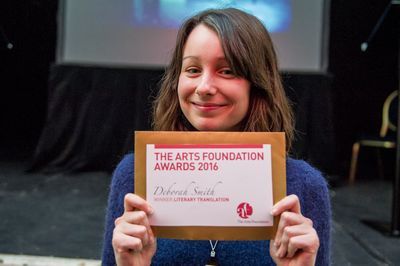A glittering Korea
By TOBY LICHTIG
North Korea sells. If the books table at the TLS is anything to go by, we have a seemingly insatiable appetite for publications about the Hermit Kingdom and the antics of its eccentrically murderous ruling dynasty. But away from the escapee memoirs, famine histories and book-length speculations about the robustness, politically and gastrointestinally, of the youthful Dear Leader, it is the South that has been gaining headway in the more refined literary arts.
Over the past few years there has been a glut of fiction in translation arriving from South Korea, much of it critically acclaimed and some of it even commercially successful. This is partly thanks to the indefatigable Dalkey Archive, whose Library of Korean Literature, produced in collaboration with the Literature Translation Institute of Korea, will ��� when complete ��� amount to an impressive twenty-five novels and collections of short stories. The latest batch arrived on my desk last month: it includes a collection about the effects of capitalist materiality on the family unit (no doubt Mr Kim would have something to say about that); a mythical love story which explores desire and sexuality ���in all its ugliness���; and, yes, a defector tale about an escapee from a country ���that might be North Korea���.
In 2014, Mark Morris reviewed the first batch of Dalkey books for us and commended the publisher for promoting classics from the past century along with ���the work of younger writers who are less concerned with Korea���s past, its complex social fabric, and literary realism���. Last year, Claire Hazelton reviewed another Dalkey offering, Choi In-hun���s The Square, which she described as ���a cornerstone of Korean literary modernism���. Other recent successes from the region include Drifting House (2012) by Krys Lee and Please Look After Mother (2011) by Kyung-sook Shin, a novel about a disappearing mother which our reviewer, Kelly Falconer, described as ���captivating���, ���unsentimental��� and ���brutally well observed���. Kyung-sook���s book was a winner of the Man Asian Literary Prize in 2012 and, as Morris noted, perhaps more importantly in terms of sales, an Oprah Winfrey ���Books to Watch��� choice. Writing in the TLS in the same year, Margaret Drabble was similarly impressed with Pak Kyung-ni���s epic romance, Land: ���a remarkable and important work in which Eastern and Western traditions fruitfully meet���.
In her review Drabble reserved especial praise for Pak���s translator Agnita Tennant, whom she likened to the great Constance Garnett in her ability to open up a ���new territory���. Since then that territory has become increasingly well traversed. Choosing to translate from the Korean might have seemed like a precarious career choice a few years ago but the market has opened up. And while most of Korean literature���s international success stories have emerged from America ��� with its sizeable Korean community ��� Britain now has a success story of its own.
Deborah Smith is described by the Arts Foundation as ���the sole translator of Korean literature in the UK���. I find this claim somewhat hard to believe, but Smith is certainly our most prominent translator from the Korean. Last year, she brought into English Han Kang���s novel The Vegetarian, an unsettling tale about an escape from social stricture involving a woman who at first refuses to eat meat and then to eat food altogether. The novel went on to achieve something of a cult following. (This paper���s critic, Peter Brown, described it as ���a strange and ethereal fable, rendered stranger still by the cool precision of the prose���.) Smith has also just finished translating Han���s next novel, Human Acts, which looks at the gruesome repercussions of the Gwangju Uprising of 1980, in which the South Korean army massacred hundreds of anti-government demonstrators. Kate Webb will be reviewing this novel in a future edition of the TLS. Without wishing to spoil the surprise, she is very impressed, and has singled out Smith for the ���sensitivity��� of her translation.
Last night Smith received rather wider recognition for her efforts with the Arts Foundation���s Award for Literary Translation. Each year the Foundation provides six ��10,000 bursaries ���to be used to pay for living and working expenses���. This is only the second time a prize for translation has been included: the Foundation was launched in the early 1990s on the back of an anonymous ��1 million bequest with a remit to ���support the individual artist��� and the categories change each year. (The others this time were Art in Urban Space; Children���s Theatre; Jewellery Design; Materials Innovation; and Producers of Live Music.) Speaking of the choice to honour a translator, one of the judges, Amanda Hopkinson, highlighted the ���significance of cultural exchange��� and praised a sector that has been ���transformed��� in Britain over the past fifteen years. Receiving the award, Smith said she planned to use the money to fund research into the Korean author Yi Chong-jun, who died in 2008 leaving a corpus of thirteen novels and many short stories.
So congratulations to Smith and congratulations to the art of translation and congratulations to Korean literature, which once again seems to be enjoying its place in the sun.
Peter Stothard's Blog
- Peter Stothard's profile
- 30 followers




